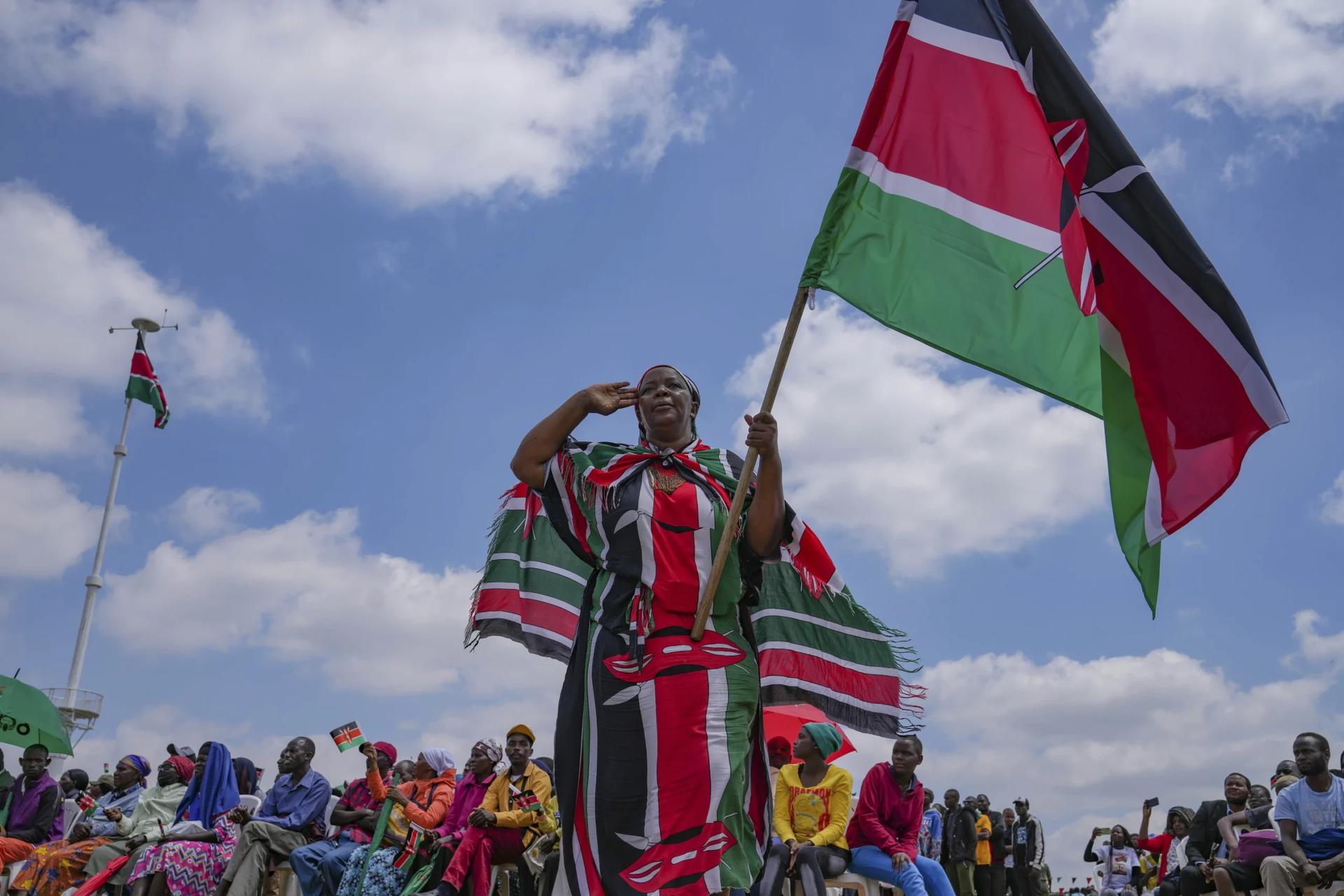YAOUNDÉ, Cameroon – Kenya’s Catholic Church has raised alarm over the poor performance of the National Health Insurance Fund (NHIF), the state corporation that provides universal health coverage (UHC) to Kenyans through a medical insurance cover.
Speaking during the Diocesan Pilgrimage held at the Komarock Shrine in the Diocese of Machakos, Bishop Norman King’oo Wambua said the NHIF was dysfunctional and accused the public entity of collapsing Catholic hospitals through unpaid bills.
“Where is the money?” Wambua asked rhetorically during the Feb. 10 event. “I don’t know what happened, but there is no more money.”
The bishop said the debt owed to Catholic institutions by NHIF is worrying.
“They are outrightly crippling our hospitals,” Wambua said.
He said the NHIF owed his diocesan hospital, Bishop Kioko Catholic Hospital, around $540,000.
The bishop added this debt was crippling the hospital’s operations and affecting the quality of care for the patients.
He appealed to political leaders to intervene and ensure that NHIF pays its dues to the Church health facilities, which he pointed out serve both Catholics and non-Catholics.
“What will we do? Kindly, you politicians, maybe you can answer where the money went. Tell us where the money went and bring it back so that we can treat our faithful and the others,” Wambua said.
The Kenya Conference of Catholic Bishops (KCCB) also expressed concern about NHIF’s inefficiency in November 2023.
In a statement after their Plenary Assembly at St. Mary’s Pastoral Centre in the Nakuru Diocese, the bishops’ conference said the Mission Health Institutions had many unpaid dues from NHIF and that the fund was not working well.
They said they were worried about the large number of unpaid reimbursements to Mission Health Institutions, noting that this was constraining the Church’s capacity to continue providing healthcare to millions of Kenyans, especially in rural areas.
A broken system
Kenya’s Health Cabinet Secretary, Susan Nakhumicha, stated on June 10, 2023, that the NHIF was having financial difficulties as a result of the nation’s financial collapse.
Records show that out of the 15.4 million members of the NHIF, 8.8 million had fallen behind on their monthly contributions in January. This was a considerable increase in the number of dormant members from the previous year, when 5.03 million members were behind in payments.
The nation’s macroeconomic conditions have also compelled businesses to slash staff pay, and in some cases, completely close. Because of this, many members had to default, making the plan unsustainable.
Available funds have also suffered from a network of corruption, with a recent report by Nakhumicha indicating the fraudsters were aided by biometrics.
The report claims that about 47 percent of hospitals accredited by the NHIF reactivated insurance accounts that had been dormant, fabricated medical insurance claims, and used deceitful techniques and biometrics obtained from other sources to obtain unjustified payments—many of which were given to patients who falsely claimed to have had major surgeries.
A staggering $126.4 million was lost as a result of these corruption schemes, however roughly $1 million has already been recovered.
Moves towards restructuring
Recently, President William Ruto said he was setting up a new scheme to replace the struggling NHIF. The country’s health ministry said on ‘X’ – formerly known as Twitter – the government of Kenya “is restructuring the @nhifkenya to the National Social Health Insurance Fund (NSHIF) to ensure that Kenyans can access quality and affordable healthcare, as envisaged in the Kenya Kwanza manifesto of achieving universal health coverage for all.”
That structure is set to go operational in March 2024, but Catholic bishops are worried that doing this in a rush could only make matters worse.
According to the KCCB, the adoption of the new program without a thorough diagnosis and resolution of the issues ailing the previous program may potentially make the state of Kenyan healthcare facilities worse.
“By covering medical expenses, including surgeries, treatments, and medications, we can ensure that individuals receive the necessary healthcare services, improving their health outcomes and quality of life,” the bishops said as they tried to emphasize the important rote Catholic health services play in the country.
“Among the many faith institutions, the Catholic Mission Hospitals are still owed over [millions of dollars] by NHIF. We are still worried about what may happen after the planned reorganization of NHIF. There should be a clear plan to pay these arrears,” the KCCB said.
The Catholic Church in Kenya runs over 500 health facilities across the country. It is one of the key partners of NHIF in providing health care to Kenyans, especially the poor and the vulnerable.













